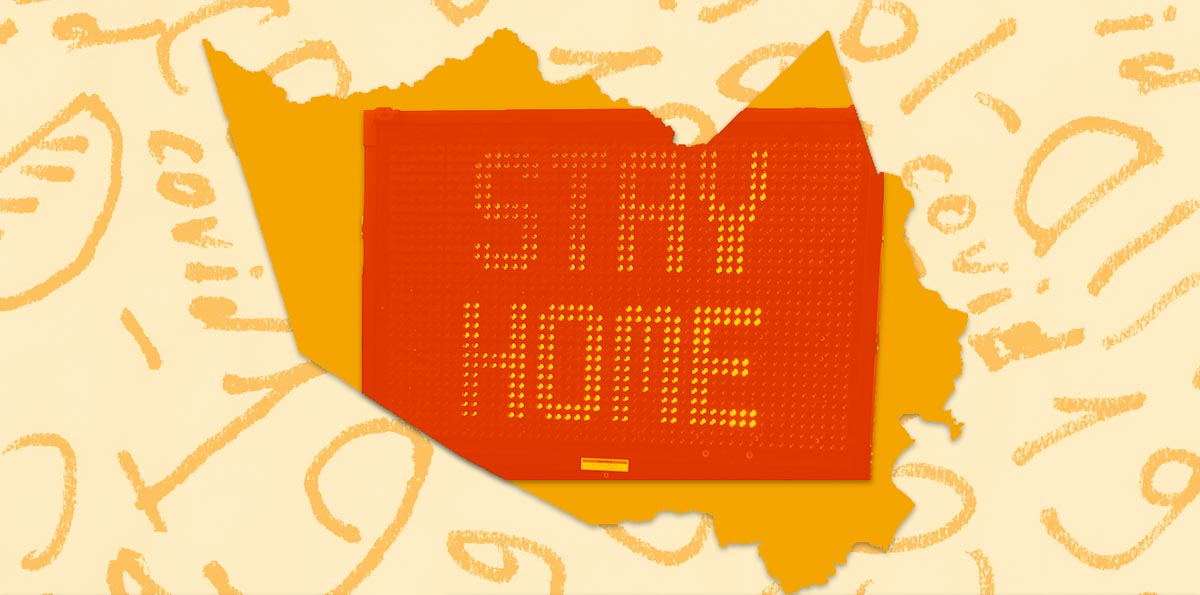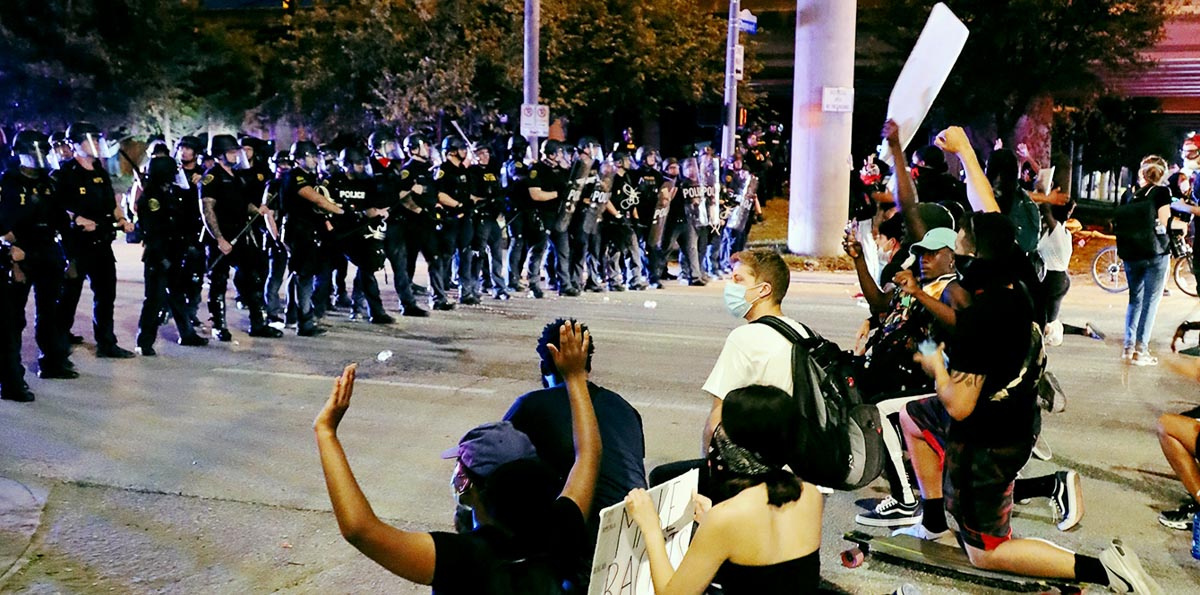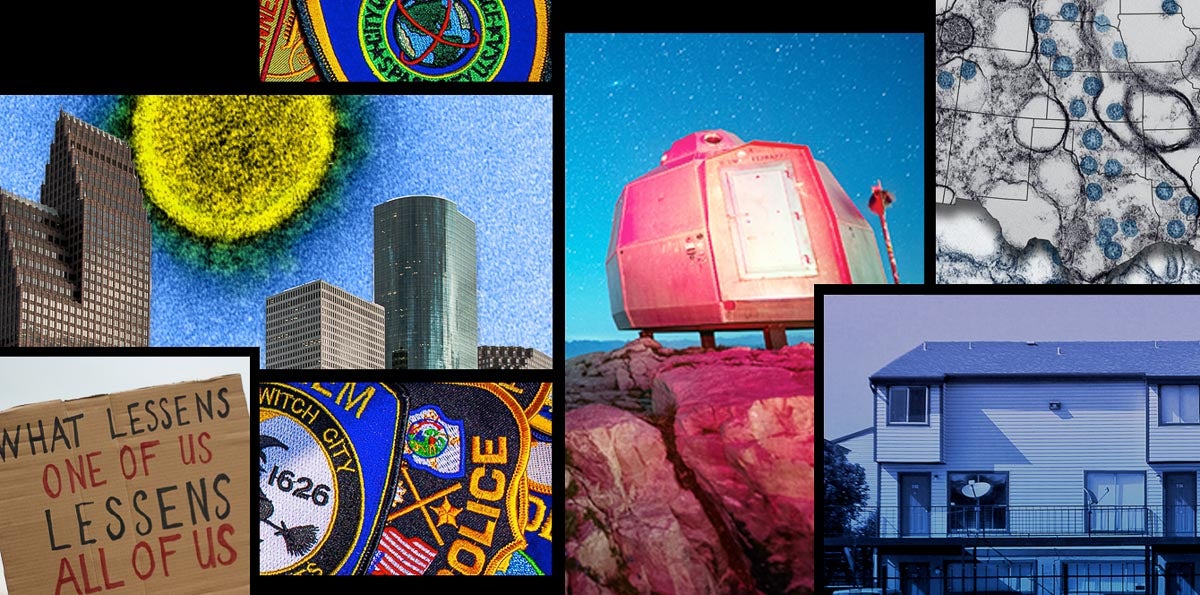COVID-19 changed everything this year.
We were already three months into the pandemic when the 2020 Kinder Houston Area Survey report dropped in May. Interviews for the 39th edition of the survey were conducted in late January and early March, just before the world was upended. At the time, the city’s traffic and congestion issues were the most-common concern — for the fourth year running.
Nearly a third of respondents said traffic was the No. 1 problem, while just 13% put the economy at the top. It seems like several lifetimes ago, but back then the jobless rate was at a 50-year low and the stock market was near a record high. The results of the survey did, however, reflect the economic and health care disparities that the COVID-19 outbreak has worsened dramatically, such as household income, food insecurity, access to health care and educational attainment.
“The coronavirus has laid bare the dimensions of the city’s deepening inequalities in access to health care and economic opportunity,” Stephen Klineberg, the Kinder Institute’s founding director, wrote in the survey report, “and it has underscored the dire consequences for Houston’s minority communities.”
The Houston-area economy was slammed by the pandemic-related economic shutdown layered on top of a downturn in the oil industry. In April, the unemployment rate reached 14.3% before falling back to 7.7% in October, but it was back up to 8.9% last month.
In addition to the coronavirus crisis and the recession it triggered, we saw the crises of chronic racial injustice and inequality, which the disease has exploited again and again. The most-read stories from the institute’s Urban Edge blog in 2020 all relate to the pandemic — from how we’ve responded and how we’ll be changed going forward, to the stresses that left so many unable to cope with the sudden shock of the disease.
Here are the year’s most-viewed — and some of the most-engaging — Urban Edge stories and a look at some of the work being done by the Kinder Institute and its researchers to provide the insight that’s needed to make the city equitable.
Most-read stories

1. What our cities will look like after the coronavirus pandemic
In short: The SARS-CoV-2 virus has forever changed the world and life as we know it. Once the current pandemic is over, it will also change our approach to where we work, how we get there and more.
2. Report: Texas is the third least aggressive state in combating COVID-19
In short: When it came to the aggressiveness of each state’s response to COVID-19 and mitigating its spread, Texas was found to be one of the least vigilant in the nation (49th) early in the pandemic.
3. Racism is hurting the economic well-being of the US and its workforce — including white workers
In short: Most people could care less about the inner workings of economics. Unless, of course, it begins to impact their jobs, their income and their wealth. This was the first of a two-part post on systemic racism’s economic impact on America.
4. Racism has shaped public transit, and it’s riddled with inequities
In short: From funding, planning and infrastructure, to design and policing, many transit agencies essentially have built two systems with different standards for “choice” and “dependent” riders (that is to say white and Black).
This was the first in a series examining race, equity and public transit in America
5. Amid the pandemic, lessons in what we’ve overlooked
In short: Has the COVID-19 crisis made you more aware of things you didn’t properly appreciate before the outbreak? What have you learned new reverence for since life was disrupted?
6. Staying at home may have saved 4,533 lives in Harris County so far
In short: The Kinder Institute’s Houston Community Data Connections team used epidemiologists’ COVID-19 models to estimate the number of hospitalizations and deaths that were prevented in Harris County by collective adherence to the stay-at-home order.
7. If you’re lucky enough to work from home, where will home be after the pandemic?
In short: The crisis forced companies to quickly transition to work from home. Now, businesses have to decide if they’ll go back to the onsite world of the old normal or continue with the remote-work model of the new normal. Employees of companies that choose the latter will have more options for where they live and office.
8. Many cities are rethinking the police, but what are the alternatives?
In short: Investments, institutions and decriminalization all are strategies that can reduce the mandate of police and be more effective in addressing certain “offenses” than the criminal justice solution. This post explored police alternatives for cities, dividing them into three groups: health, relationships and community patrol.
9. As COVID-19 cases surge in Texas, July rent is due for many struggling to avoid eviction
In short: Renters in Texas were some of the first in the nation to face evictions after the state’s moratorium blocking eviction proceedings expired last month. A U.S. Census Bureau survey finds that 33% of renter households in Texas have little or no confidence in their ability to pay rent for July.
10. Where are Texas' fastest-growing cities? Check the suburbs
In short: Frisco was the fastest-growing city in the U.S. during the past decade — its population (just shy of 200,500) is 71% larger than it was in 2010 — according to the Census Bureau. It’s also the fastest-growing city in Texas — and No. 6 nationwide — in terms of sociodemographic and economic expansion.
►►►►
Our ongoing “COVID-19 and Cities” coverage examines the pandemic’s effects on Houston and other metropolitan areas, both now and after it’s over. How Houston and other cities recover from the pandemic and address the need to be more equitable will dominate urban research in the years to come. The impact is already being seen.
Using data to track the virus
Almost 1 in 7 Houstonians — or 13.5% — has been infected with COVID-19. That’s according to blood samples taken from a random sample of Houston households that took part in an antibody testing survey conducted by the Houston Health Department (HHD) in September. The results, which are four times higher than testing at the time indicated, provide a more precise understanding of the disease’s prevalence in Houston as well as what regions of the city or communities are most impacted by the disease.
The Centers for Disease Control and Prevention (CDC) funded the study, which was designed by Rice University researchers. Kathy Ensor, a professor of statistics at Rice who also oversees the Kinder Institute Urban Data Platform, designed the sample used in the study.
Those who tested positive for antibodies in phase one of the study are invited to be retested in early 2021 as part of phase two. Retesting will provide information about how long — and at what level — people maintain COVID-19 antibodies over time.
Researchers at Rice University partnered with local health departments to launch the COVID-19 Registry in April. Data collected from close to 8,900 participants so far provide first-hand, real-time information about the COVID-19’s spread over time and helps improve understanding of the disease. Information collected also offers insight into the pandemic’s short-term and longitudinal impact on the mental health, financial security and work situation of participants. The registry was built with the same survey and data-analysis software that the Children’s Environmental Health Initiative team used to develop the Texas Flood Registry in 2018 following Hurricane Harvey in late 2017. The Texas Flood Registry 2020 report released in August offers updates on the epic storm’s long-term impact and new findings about how flooding caused by storms in May 2019 and Tropical Storm Imelda have effected residents’ health and housing situation.
The Kinder Institute’s Houston Education Research Consortium is a partner on the Gulf Coast Coronavirus (COVID-19) Community Impact Survey, another effort to help the region’s residents connect with the resources they need. COVID-19 has underscored society’s many underlying inequities, including those related to educational opportunities. In response to inequities in education, HERC is working closely with the Houston Independent School District on a wide-ranging equity project to help historically disadvantaged students succeed.
A collaboration between Urban Harvest and the Kinder Institute’s Houston Community Data Connections led to the creation of a data-based decision support tool that informs the nonprofit’s strategy for dispatching its mobile market. The mobile market was launched in August to bring healthy and affordable food options to underserved areas with limited access to fresh fruits and vegetables.
The need to end racial injustice and police brutality

In the wake of George Floyd’s death in Minneapolis, protests against police brutality and systemic racism spread across America and around the world. The response by protestors in cities large and small calling for an end to police brutality and the rethinking of the role of police in society was so immense it drew comparisons to the Arab Spring.
Over the summer, we ran a four-part series that examined the intersection of race, equity and public transit in America, and brought local and national insights from transit advocates and experts.
Part one: “Racism has shaped public transit, and it’s riddled with inequities”
Part two: “What transit agencies get wrong about equity, and how to get it right”
Part three: “What transit equity means to a transit-dependent rider in a car-centric city”
Part four: “To tackle pandemic racism, we need to take action, not just take to social media”
In June, Houston Mayor Sylvester Turner assembled a 45-member Task Force for Policing Reform in response to Floyd’s death. In September, the task force delivered a 150-plus-page report featuring more than 100 recommendations for improving the Houston Police Department. Chief among them was the need to revamp the Independent Police Oversight Board (“IPOB”), a volunteer civilian board that performs oversight of HPD’s major use-of-force incidents.
Kinder Institute researchers compared the police oversight agencies in Houston, Austin, Dallas, Fort Worth and San Antonio and shared their findings in a report called “Who’s Policing the Police?: A Comparison of the Civilian Agencies that Perform Oversight of Police in Texas’ Five Largest Cities.”
To effectively monitor police and investigate cases of alleged misconduct, the researchers maintained, oversight boards need independence, access to information and evidence, and adequate funding. If given sufficient power and authority, these agencies can hold police departments accountable for officers’ actions and build public trust. The researchers concluded that, compared to Austin and Dallas, the Houston oversight board is weak and needs to be reformed.
To learn more about police culture, the dos and don’ts of policing reform and alternatives to police, check out the series of stories Kinder Institute researcher Stephen Sherman wrote in July.
Embrace the opportunities 2021 presents
The issue of inequities in urban life has been a growing concern in the past few years, and the pandemic has amplified most — if not all — of the disparities that pre-date it. Add to that the havoc that has been wreaked on the budgets of cities across the U.S. by the crisis.
According to Kinder Institute Director William Fulton: “The American dream of equality of opportunity appears to be slipping away and it has become increasingly difficult for cities — traditionally engines of upward mobility for families — to reverse the trend.”
But, Fulton said, Houston is well-positioned to fight inequity: “Houston can become a model for an equitable city — even in the face of extreme events such as those the city faces often.”
What will be Houstonians’ top concern in the 40th Houston Area Survey? The economy? The fallout from the pandemic? Maybe it’ll be health care, public health or the future threat of another pandemic. Whatever it is, it probably won’t be traffic. Then again, if 2020 has proven anything, it’s that you just never know.
Get Urban Edge updates
If you’re interested in stories that explore the critical challenges facing cities and urban areas — from transportation, mobility, housing and governance, to planning, public spaces, resilience and more — get the latest from the Urban Edge delivered to your inbox.

